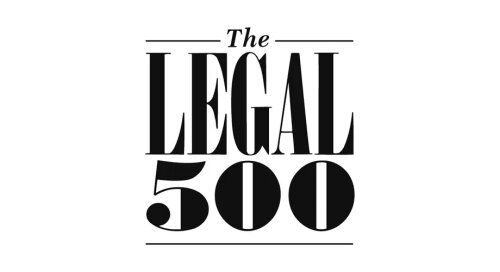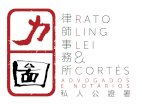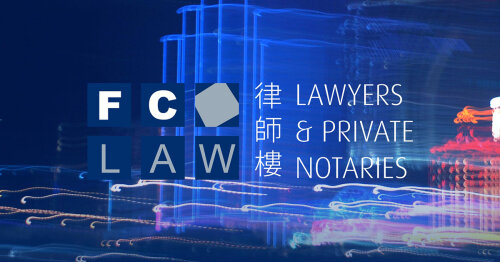Best Whistleblower & Qui Tam Lawyers in Beijing
Share your needs with us, get contacted by law firms.
Free. Takes 2 min.
List of the best lawyers in Beijing, China
About Whistleblower & Qui Tam Law in Beijing, China
Whistleblower law in Beijing, China, is part of a broader regulatory framework aimed at combating corruption and encouraging the reporting of illegal activities within various sectors, including government and private industries. The concept of Qui Tam, which allows private individuals to file lawsuits on behalf of the government and potentially receive a portion of the recovered funds, is not well-established in Chinese law as it is in some Western jurisdictions.
However, China has been progressively strengthening its whistleblower protections and incentives, particularly in the context of anti-corruption initiatives. Legislation has been evolving to protect those who disclose wrongdoing from retaliation and to reward them for their civic contribution. It’s important to note that the legal landscape in China, including Beijing, differs significantly from that of countries like the United States and may not offer the same legal recourse in Qui Tam cases. Therefore, it is crucial to understand the specific legal context and protections available in Beijing.
Why You May Need a Lawyer
Whistleblowers may need legal advice to ensure their rights are protected and to navigate the complexities of laws governing these disclosures. Legal expertise is particularly important in situations involving reporting corruption, fraud, safety violations, or other illegal activities within public offices or private organizations. A lawyer can provide guidance on protecting oneself from retaliation, understanding whistleblower incentive schemes, and ensuring the confidentiality of the whistleblower's identity.
Additionally, in corporate settings, legal discrepancies or disputes concerning employment and whistleblower protections may arise, necessitating professional legal counsel. Lawyers specialized in this area are crucial for advising on the legalities of the reporting process and potential outcomes.
Local Laws Overview
In China, various laws include aspects related to whistleblowing, such as the Anti-Unfair Competition Law, the Criminal Law of the People’s Republic of China, and the Anti-Corruption Law. These laws criminalize corrupt activities and, to some extent, provide protection for those who report such acts. The Chinese legal system continues to evolve in its approach to encourage the reporting of misconduct while balancing it against the need for corporate and state secrecy. Beijing, as the capital, is at the forefront of implementing and enforcing these laws.
The Chinese government has also established channels and incentives for reporting corruption, and these are often regulated by different agencies. It is critical to be aware of the relevant authority to approach when disclosing information. While there are protections in place, these may not be as extensive or as clear-cut as in some other jurisdictions, and they often involve navigating complex bureaucratic systems.
Frequently Asked Questions
What legal protections do whistleblowers have in Beijing?
Whistleblowers in Beijing have certain legal protections against retaliation, particularly following the recent push within China to encourage the reporting of corruption and other illegal activities. However, these protections can be less defined than in Western countries and often require the guidance of a legal professional to navigate successfully.
Can whistleblowers receive rewards in Beijing?
There may be reward systems in place for whistleblowers, but these are generally not as established as Qui Tam provisions in other legal systems. The premise of receiving monetary rewards for reporting illegal activities exists, but the criteria and process can be bureaucratic and not as transparent.
Who can be a whistleblower in Beijing?
Any individual with knowledge of illegal activities or misconduct can be a whistleblower. This includes employees, citizens, and, in some cases, participants within an illegal act looking to disclose information.
What types of wrongdoing can be reported?
Wrongdoing that can be reported typically includes bribery, fraud, regulatory noncompliance, and activities that endanger public health or safety, as well as other forms of corruption or illegal acts.
Is anonymity guaranteed for whistleblowers in Beijing?
While there might be measures in place to protect the identity of the whistleblower, absolute anonymity cannot always be guaranteed. The level of confidentiality that can be maintained often depends on the specifics of the case and the authority to which the information is reported.
How does one report wrongdoing in Beijing?
Whistleblowing can typically be done through designated government hotlines, online portals, or specific regulatory bodies tasked with overseeing the type of wrongdoing that is being reported.
Can foreigners working in Beijing be whistleblowers?
Foreigners working in Beijing have the right to report wrongdoing. However, they should be especially cautious and seek legal counsel given the potential complexity of their legal status and the ramifications of whistleblowing on their residency and employment situation.
What should I do if I face retaliation for whistleblowing?
If you face retaliation after whistleblowing, seeking legal advice immediately is imperative. Retaliation can come in many forms, and a lawyer can help you understand your rights and the precautions you can take.
Can I report wrongdoing anonymously?
While anonymous reporting is possible, it may limit the authorities’ ability to follow up and protect the whistleblower legally. Anonymity might also affect the credibility or the verifiability of the reported information.
How long does a whistleblower case take in Beijing?
The duration of a whistleblower case in Beijing can vary greatly depending on the complexity of the case, the responsiveness of government bodies, and the specifics of the reported wrongdoing. It is difficult to provide a definitive timeline without knowing the details of an individual case.
Additional Resources
Individuals seeking legal advice in the field of Whistleblower & Qui Tam in Beijing may refer to the following types of resources: - Government anti-corruption agencies and hotlines - Legal forums and networks that specialize in whistleblower cases - Non-governmental organizations that support transparency and anti-corruption initiatives
Next Steps
If you require legal assistance in Whistleblower & Qui Tam matters in Beijing, the first step would be to consult with a lawyer who specializes in this field. They will be able to provide advice tailored to your situation, help you understand your rights, and guide you through the reporting process. It’s important to discuss all potential risks and benefits, as well as the steps for maintaining confidentiality and protecting yourself from retaliation. Documenting all relevant information and communications is also critical in preparing for any legal processes that may follow.
Lawzana helps you find the best lawyers and law firms in Beijing through a curated and pre-screened list of qualified legal professionals. Our platform offers rankings and detailed profiles of attorneys and law firms, allowing you to compare based on practice areas, including Whistleblower & Qui Tam, experience, and client feedback.
Each profile includes a description of the firm's areas of practice, client reviews, team members and partners, year of establishment, spoken languages, office locations, contact information, social media presence, and any published articles or resources. Most firms on our platform speak English and are experienced in both local and international legal matters.
Get a quote from top-rated law firms in Beijing, China — quickly, securely, and without unnecessary hassle.
Disclaimer:
The information provided on this page is for general informational purposes only and does not constitute legal advice. While we strive to ensure the accuracy and relevance of the content, legal information may change over time, and interpretations of the law can vary. You should always consult with a qualified legal professional for advice specific to your situation.
We disclaim all liability for actions taken or not taken based on the content of this page. If you believe any information is incorrect or outdated, please contact us, and we will review and update it where appropriate.















